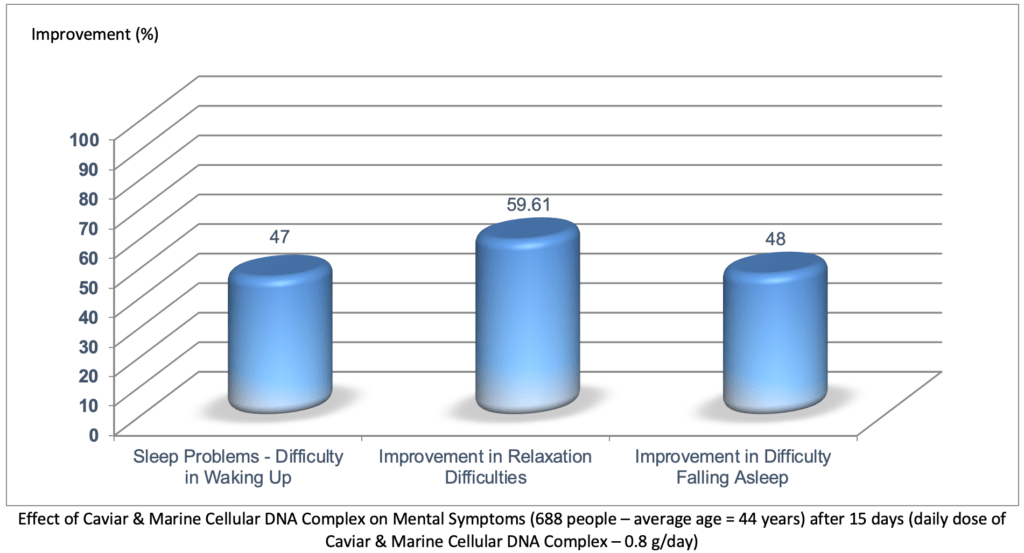How to Improve Your Quality of Sleep and Why Sleep is Important for your Immunity
Caviarlieri | Published September 16, 2020
How do you feel when you wake up in the morning? Are you refreshed and ready to go, or are you groggy and grumpy? For many people the experience in the second scenario is all too common. Now with the rampant Covid19 virus affecting seriously the daily lives of people worldwide and with the economy grinding to a halt, insomnia has become a serious health issue for many who are struggling with anxiety and stress.
Sleep is critical to the effective functioning of our immune system. Studies show that people who do not get quality sleep or enough sleep are more likely to get sick after being exposed to a virus. Lack of sleep can also affect how fast you recover if you do get sick.
During sleep, your immune system releases proteins called cytokines, some of which help promote sleep. Certain cytokines are necessary to be increased when you have an infection or inflammation, or when you’re under stress in order to recover. Sleep deprivation may decrease production of these protective cytokines. In addition your infection-fighting antibodies and cells which protect your body are reduced during the periods when you don’t get enough sleep. So, your body needs sleep to fight infectious diseases.

Sleep is also a key promoter of emotional wellness and mental health, helping to reduce your stress levels, depression, and anxiety. Prolonged sleep deprivation also increases the risk for your susceptibility to a number of chronic health problems, including obesity, diabetes, high blood pressure, and heart disease.
Many people resort to sleep medications and drugs to treat insomnia. However, sleep medications are not necessarily the best option. Growing evidence now supports the use of cognitive behavioural therapy, and effective nutritional supplements (a drug-free approach) to improve the quality of sleep.

Here are some of the ways to improve your sleep. These good habits are known as “sleep hygiene,” because they represent scientific validation about maintaining healthy sleep patterns.
8 Ways to Improve Sleep Hygiene
- Create a sleep haven
A sleep-friendly bedroom can make it easier to fall and stay asleep. So you should take time to address issues that affect what you hear, see, and feel while you are in bed. Control the noise level, keep your room temperature cool and ensure that the lights are dim. - Try relaxation rituals
Closer to bedtime, try comforting rituals that may help lull you to sleep:- Listen to soft, calming music
- Take a warm bath
- Do some easy stretches
- Read a book or magazine by soft light
- Curb Caffeine
If you have insomnia, avoid caffeine as much as possible, since its effects can last for many hours. Those who can’t or don’t want to give up caffeine should avoid it after 2 p.m., or noon if they are especially caffeine-sensitive - Restrict Alcohol Intake
Alcohol depresses the nervous system, so an alcoholic drink makes some people fall asleep more quickly. But the sleep won’t necessarily be very good. Alcohol is responsible for up to 10% of chronic insomnia cases. Also, because alcohol relaxes throat muscles and interferes with brain control mechanisms, it can worsen snoring and other nocturnal breathing problems, sometimes to a dangerous extent. - Exercise
Exercise is the only proven way for healthy adults to boost the amount of deep sleep they get. Research shows that older men and women who report sleeping normally can still increase the amount of time they spend in deep sleep if they do some form of aerobic activity - Watch when and what you eat and drink before going to bed
A grumbling stomach can be distracting enough to keep you awake, so if you’re hungry right before bed, eat a small healthy snack, such as an apple with a slice of cheese or a few whole-wheat crackers, to satisfy you until breakfast. But an overly full belly may be even more disrupting. Avoid eating a big meal within two to three hours of bedtime. And steer clear of foods that contribute to acid reflux (heartburn), as lying down can provoke or worsen the problem. Common culprits include coffee, chocolate, alcohol, peppermint, and fatty foods. Drinking too much of any fluid too close to bedtime may cause you to wake up to use the bathroom. - Taking Nutritional Supplements
If you require a little extra help to get a good night’s sleep, you may wish to consider trying the following natural sleep-promoting supplements instead of taking drugs or sleep medication.
Melatonin is a hormone that your body produces naturally, and it signals to your brain that it’s time to sleep. Several studies report that melatonin improves daytime sleep quality and duration. Moreover, melatonin may improve overall sleep quality in individuals with sleep disorders.
Magnesium is a mineral involved in hundreds of processes in the human body, and it’s important for brain function and heart health. In addition, magnesium may help quieten the mind and body, making it easier to fall asleep.
Studies show that magnesium’s relaxing effect may be partly due to its ability to regulate the production of melatonin. Magnesium is known to relax muscles and induce sleep.
One study found that a combination of magnesium, melatonin, and vitamin B was effective in treating insomnia regardless of the cause.
Glycine is an amino acid that plays an important role in the nervous system. Studies show it may also help improve sleep. Exactly how this works is unknown, but glycine is thought to act in part by lowering body temperature at bedtime, signaling to the brain that it’s time to sleep.
You can also increase your glycine intake by eating foods rich in nutrients, and animal products such as bone broth, meat, eggs, poultry, and fish, beans, spinach, kale, cabbage, fruits like bananas and kiwis.
Other supplements are Tryptophan, Ginkgo biloba and L-theanine. - Try Caviarlieri – Caviar Swiss Cellular Therapy Supplement
Researched, developed and made in Switzerland, Caviarlieri works on multiple levels of the human body and its benefits are diverse, extensive and its effects vary among individuals. Almost all of our customers are unanimous when they report improved energy levels, better sleep quality, enhanced skin complexion, significant reduction in joint pain, mood elevation, increased sexual desire and libido.

Swiss Cellular Therapy Caviar Supplement
Unlike other food supplements, Caviarlieri provides essential nutrition directly at the cellular level, thereby enabling its optimal absorption into the cells, stimulating cellular renewal and repair against damaged cells.
Backed by extensive research, Caviarlieri has several scientific studies which have been published in peer-reviewed journals. It also has an empirical double blind placebo controlled studies on its key ingredients. Further research is still ongoing in the US, Switzerland and Europe on the genetic expression in key biomarkers which defy the aging process when one takes Caviarlieri.
Improvement in Sleep Quality
The study below demonstrates the effectiveness of Caviar & Marine Cellular DNA Complex in Caviarlieri which helps enhance sleep quality.
Based on this study, 48% of the subjects reported improvements in ‘difficulty in falling asleep’, 59.61% in ‘relaxation difficulties’ and 47% in ‘difficulty in waking up’.

Effective for Mental Fatigue

Knowing how important good quality sleep is to fight infection and delay the onset of degenerative diseases, it is crucial for you to overcome your sleep problems. By having good quality sleep, you will have better energy, productivity, and mental well-being during the day.
While there are no guarantees that you can always get eight hours of uninterrupted rest, with proper compliance with the rudiments for getting better sleep and treatment, you can reasonably expect improvements in your sleep—and your overall quality of life.
Subject
Recent Posts
-
The Amazing Benefits of Highly Polymerized Fish Collagen Peptides with Elastin – Caviarlieri
-
The World’s Most Effective Caviar DNA Extract with Marine Bioactive Peptides
-
Are Supplements effective for Joint Pain?
-
Why Is Sustainable Immunity Important for Your Long-Term Health
-
What is your “Body Age” – Biological Age?




